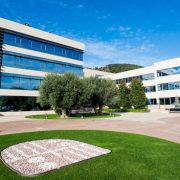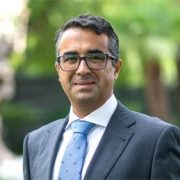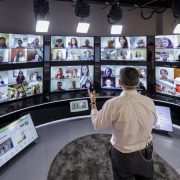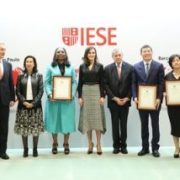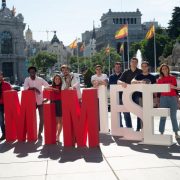Leading International Companies Launch Restarting Together: An Initiative To Boost Recovery After COVID-19
- Boston Consulting Group, CEMEX, Telefonica, Airbus BizLab, BASF, BID Lab, Citi, Endeavor, IE, IESE Business School, Microsoft for Startups and South Summit are organizing Restarting Together, a global challenge for startups and small and medium-sized enterprises (SMEs). The initiative is designed to contribute to a fast-economic recovery and create a more resilient society in the face of a crisis like the current pandemic.
- The call for entries will be open from June 2 through June 30, 2020, on restartingtogether.com.
- The most promising solutions will showcase their project to a specialized jury on September 9, 2020, and the winners will share their vision with global leaders while having the possibility to receive acceleration support or investment.
June 2, 2020. Airbus BizLab, BASF, Boston Consulting Group, CEMEX, Citi, Endeavor, IDB Lab, IE, IESE Business School, Microsoft for Startups, South Summit and Telefonica announced today the launch of Restarting Together, a global challenge that seeks to boost innovative projects after the impact of COVID-19. The initiative aims to promote projects developed by entrepreneurs and SMEs that will contribute both to speed up economic recovery after the effects of the pandemic, and create a more resilient society, with more effective and sustainable capabilities against future similar crises. Through this joint initiative, this diverse group of industry leaders want to promote community engagement to build a better society.
The overall goal of Restarting Together is to find innovative projects that seek to expedite the return to normality after the confinement period caused by the COVID-19 pandemic. This initiative also looks to identify projects to boost economic recovery in a sustainable way, aimed specially at improving employment, revitalizing the ecosystem of small businesses, and creating networks and financial aid mechanisms for crisis situations. Likewise, the challenge encourages entrants to propose solutions that bolster cities´ response for any type of crisis in the future, whether it be sanitary, economic or driven by environmental or climate change issues.
Interested participants can present their proposals from June 2 through June 30, 2020 by entering www.restartingtogether.com. Proposals will be evaluated based on their projects’ social and economic impact, feasibility, rapid implementation time, and degree of sustainability and innovation.
The nine most promising projects would be scheduled to participate on a digital Pitchday on September 9, 2020, where they would present their solution directly to the organizing companies´ representatives, who would select three winners to share their vision with global leaders from the supporting companies. The three winners would enjoy the possibility of receiving access to corporate resources from the organizing companies, including potential acceleration or investment. Additionally, all proposals should be available for development, promotion, and implementation by all, or some, of the companies organizing Restarting Together. The global and multidisciplinary focus of the industry leaders that make up Restarting Together allows for the implementation of these solutions, with the potential to achieve global results to make the strongest potential impact on society.
The organizers will offer participants their experience and knowledge in diverse industries, as well as the opportunity to build relationships with leading multinational companies, and possible access to investment capital.
For more information about Restarting Together and the registration process, please visit www.restartingtogether.com.


